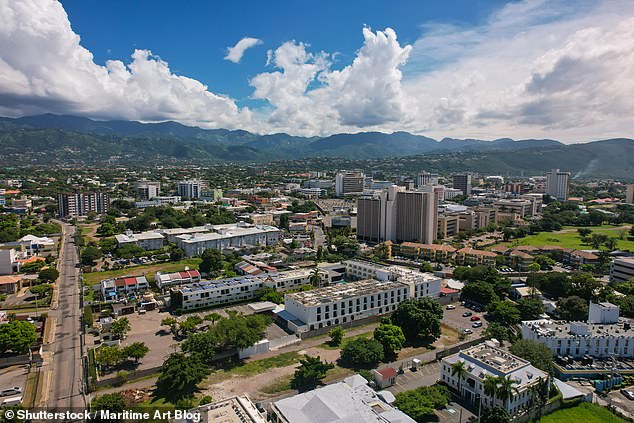A Jamaican drug dealer who has applied for asylum six times says repeatedly applying for permission to stay in the UK is bad for her mental health.
The woman, who has not been named, arrived in Britain in 2002 and was jailed for six years the following year for selling Class A drugs.
Deportation proceedings started but she then made multiple applications to avoid being sent back to the Caribbean island.
Following her last appeal, the woman – who suffers from mental health issues including schizophrenia – has been granted ‘limited’ leave to remain until 2026.
She claimed the refusal by the Home Office to grant her indefinite permission to stay was a breach of her human rights and a demanded a judicial review of the decision.
The Upper Tribunal of the Immigration and Asylum Chamber denied her request after hearing that Home Secretary Yvette Cooper is already reconsidering her application.

A First-tier Tribunal previously found she would be at risk of ill-treatment in Jamaica on account of her sexual orientation. Aerial view of Kingston, Jamaica.
The hearing was told that the drug dealer, known only as AXS, was sentenced to six years in prison for supplying Class A drugs in 2003, following which deportation proceedings began.
Her asylum claim was initially denied but in May 2008 but she successfully appealed under the European Convention on Human Rights claiming she was at risk of torture or degrading treatment if she was returned to the Caribbean island.
A First-tier Tribunal found she would be at risk of ill-treatment in Jamaica on account of her sexual orientation.
She made further successful claims in 2010, 2012, 2015, 2019 and 2023, when she was on each occasion granted limited leave to remain.
In 2015 her son was allowed to enter the country, with the judge in that case observing that his mother was likely to remain in the UK for the rest of her life.
Before the 2023 application, the woman applied for indefinite right to leave but that was refused, with a further limited leave granted until 2026.
This decision is now being reviewed by the government, the hearing was told.
The tribunal, held in May in London, heard that she had suffered sexual abuse and rape in Jamaica, had been sectioned and was a paranoid schizophrenic.
She has an IQ of 61 – classed as mild mental disability.
Dr Rachel Thomas, consultant clinical psychologist, deemed that the ‘repeated act of applying for further leave was retraumatising the applicant and damaging her mental health’.

The Upper Tribunal of the Immigration and Asylum Chamber denied her request after hearing that Home Secretary Yvette Cooper (pictured in the House of Commons) is now reconsidering her application
Dr Thomas was of the opinion that the her mental health was unlikely to improve, and in fact likely to deteriorate significantly, unless she was permitted to remain permanently in the UK, the tribunal heard.
Upper Tribunal Judge Mark Blundell decided that there had been no issues with the judicial process in refusing her indefinite leave.
He said the tribunal should not intervene until the Home Office has made a new decision when the Secretary of State may ‘decide that the impact of refusing ILR would have such a serious impact on her mental health that it cannot now be justified by any relevant countervailing considerations’.
Judge Blundell concluded: ‘The facts remain very much in dispute, particularly as regards the impact of the denial of IRL (Indefinite Right to Leave) on the applicant’s mental health.
‘The absence of an extant decision from the Secretary of State is significant, and it is not appropriate, even in this human rights context, for the tribunal to act as the primary decision maker. I accept that these delays are regrettable in a case involving a person with mental health problems.’












